7 things you should always keep in the trunk of your car
The essential kit that should be in your trunk for every car journey
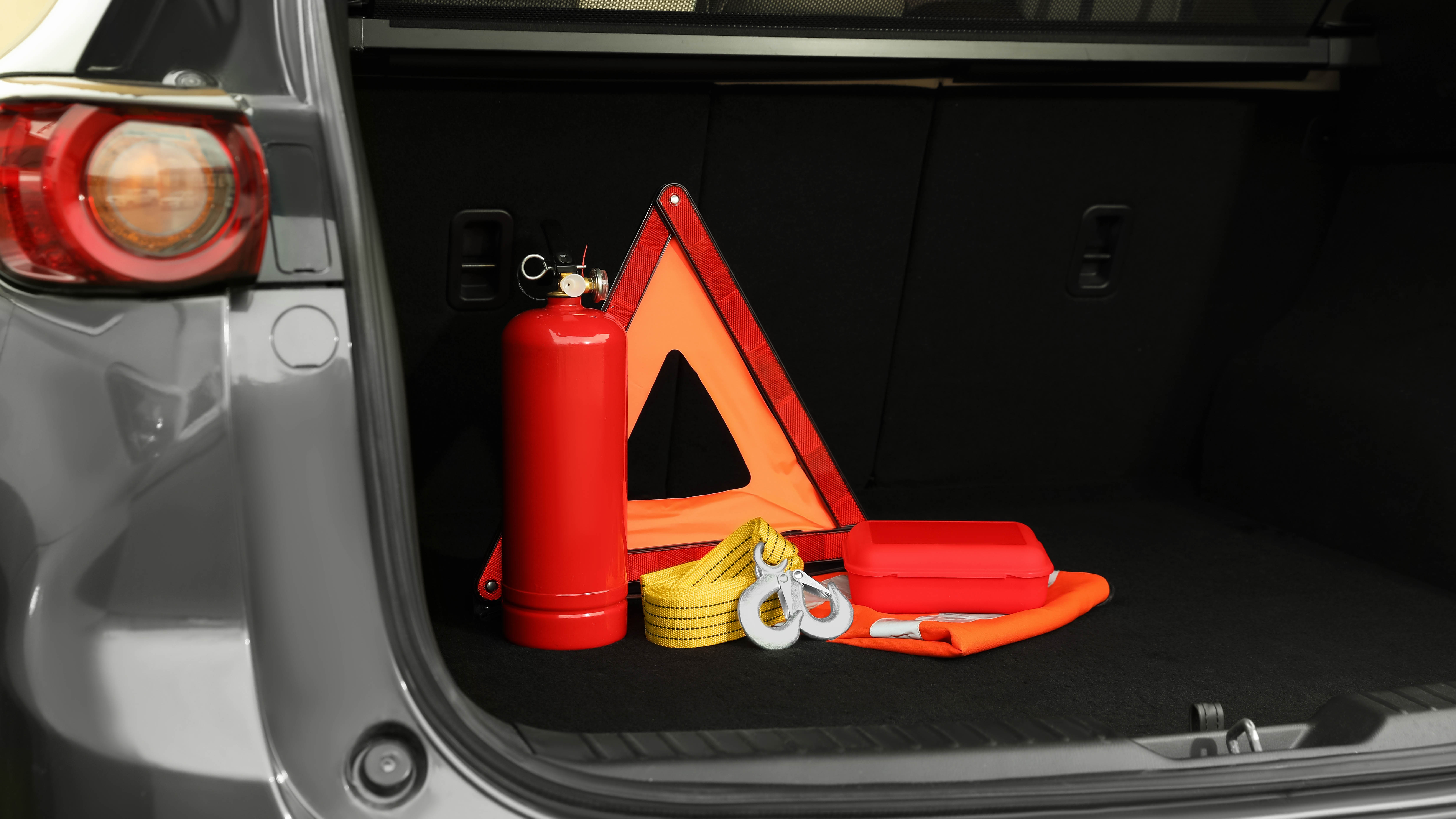
Depending on the age and condition of your car, you may never have a need for any of the essentials on this list. But, you never know when you’ll be hit with a flat battery or a sudden puncture. And when that time comes, you’ll be pleased you had the foresight to load up your trunk with some essentials.
This car-focussed list centers around the basic tools and the most essential safety kit. But you might want to consider adding bottled water, snack bars, blankets and snow chains, especially if you’re heading out in bad weather. Likewise, if you’re driving in very remote areas, it can be helpful to pack extras like some sturdy shoes, a lighter, as well as a fully charged power bank for your phone and extra batteries for the flashlight.
Here’s our list of the top seven essentials to keep in the trunk of your car. Be aware that it’s not in order of priority since most of these things are must-haves.
1. Flashlight
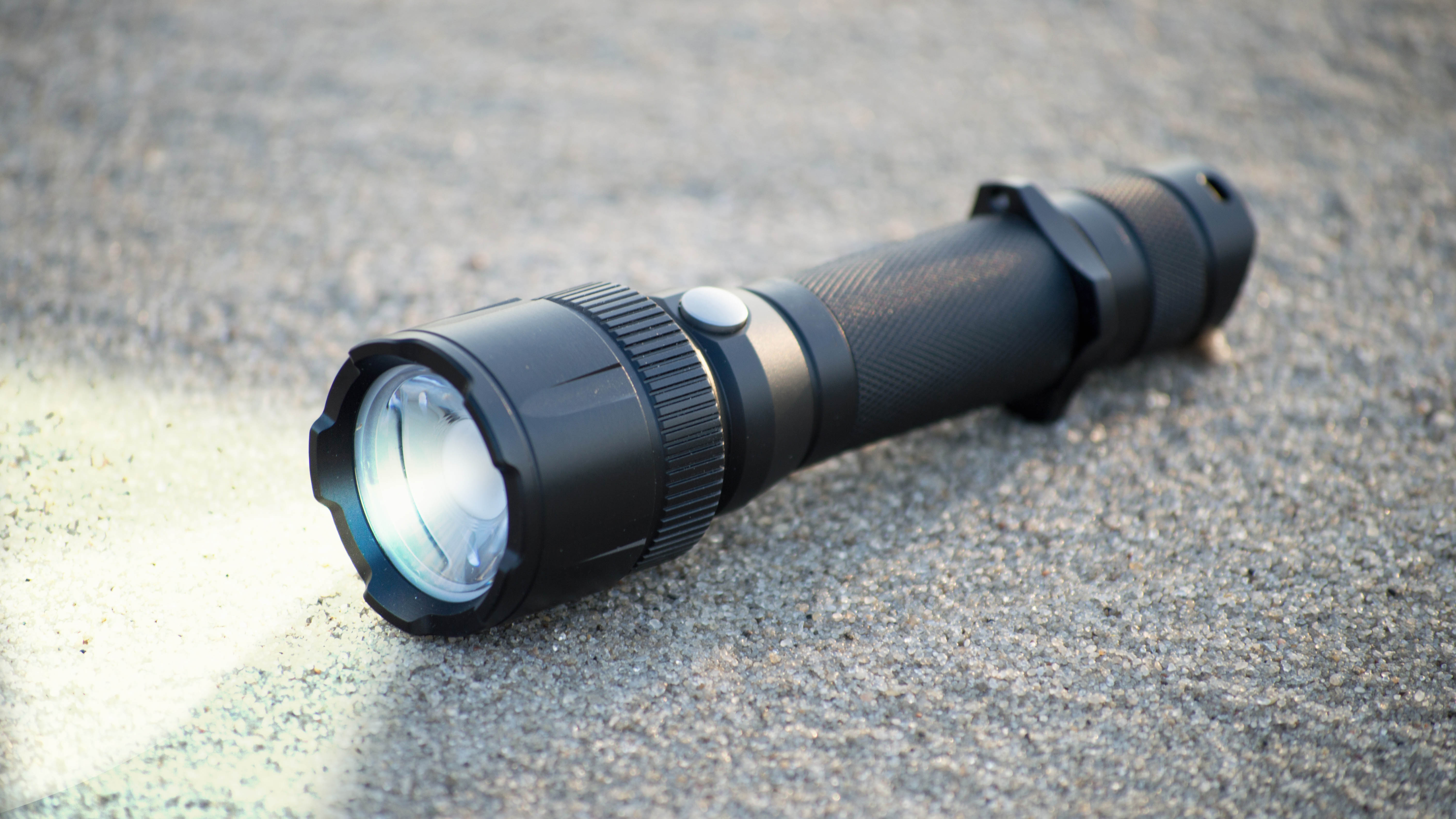
It doesn’t matter if you’ve got all the tools in the world to fix a problem with your car, if it’s pitch black and you can’t see what you’re doing, you’ll struggle. And while you probably have a flashlight built into your phone, it’s not worth draining your phone battery in case you need to make an emergency call.
Similarly, if you find yourself needing to walk from your car to a gas station in the dark, you’ll be grateful for a decent flashlight. You can choose a heavy duty battery flashlight or a wind up flashlight. When choosing, consider how likely it is you’ll remember to check the batteries regularly. If you’re likely to forget, then a wind up flashlight is the one for you.
2. First aid kit
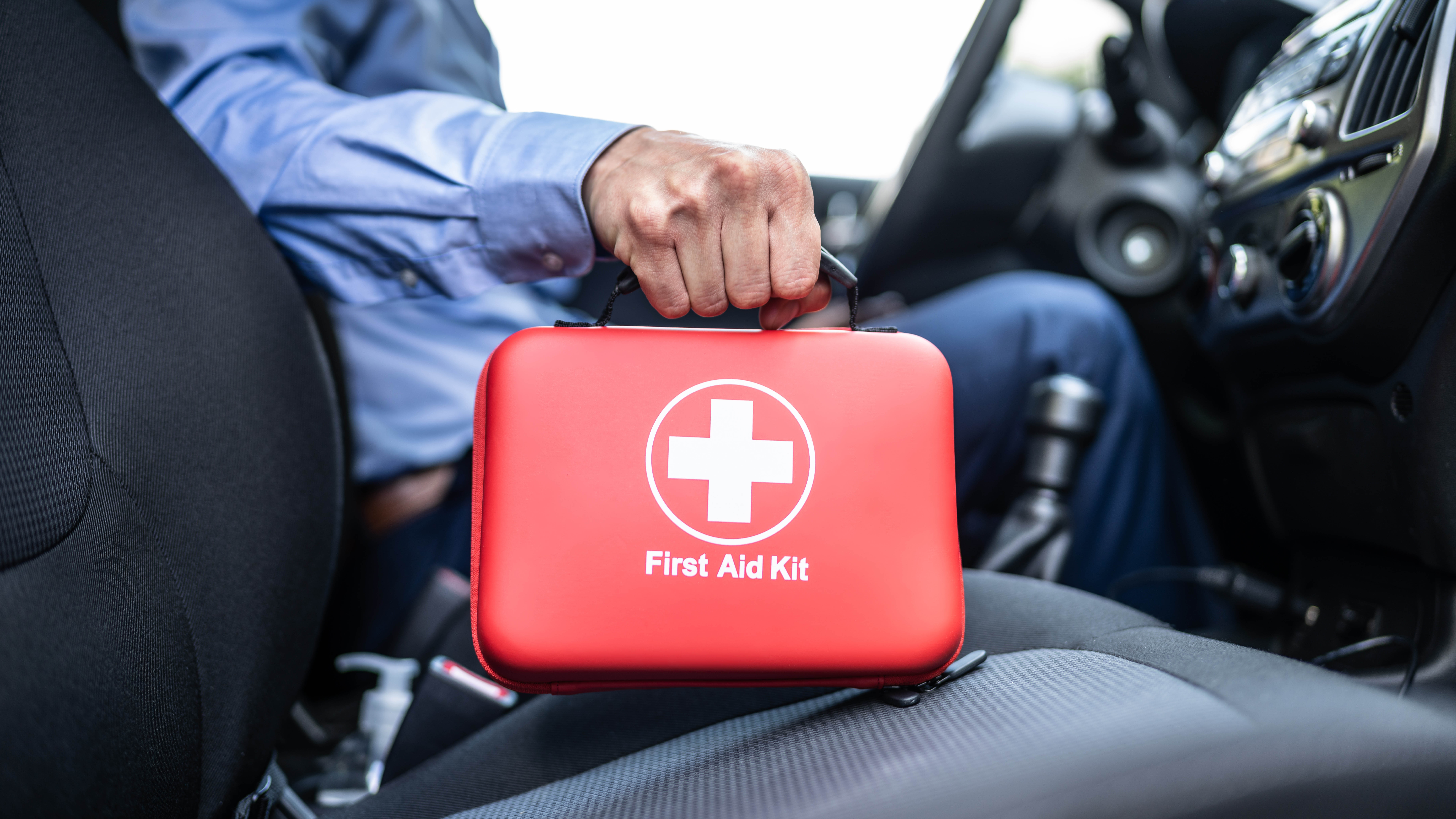
Whether you buy a ready-made kit of first aid essentials, or you put together your own, it’s important to keep a first aid kit in your car. According to AAA your car first aid kit should include gloves, bandages, antiseptic ointment, bug spray, tweezers, and gauze pads.
But that’s the bare minimum and we’d recommend including band aids, antiseptic wipes, scissors, safety pins, and an emergency foil blanket. If you or anyone traveling in your car takes essential medication then it’s always a good idea to pack some extra for the journey in case you get delayed.
Get instant access to breaking news, the hottest reviews, great deals and helpful tips.
3. Essential tool kit
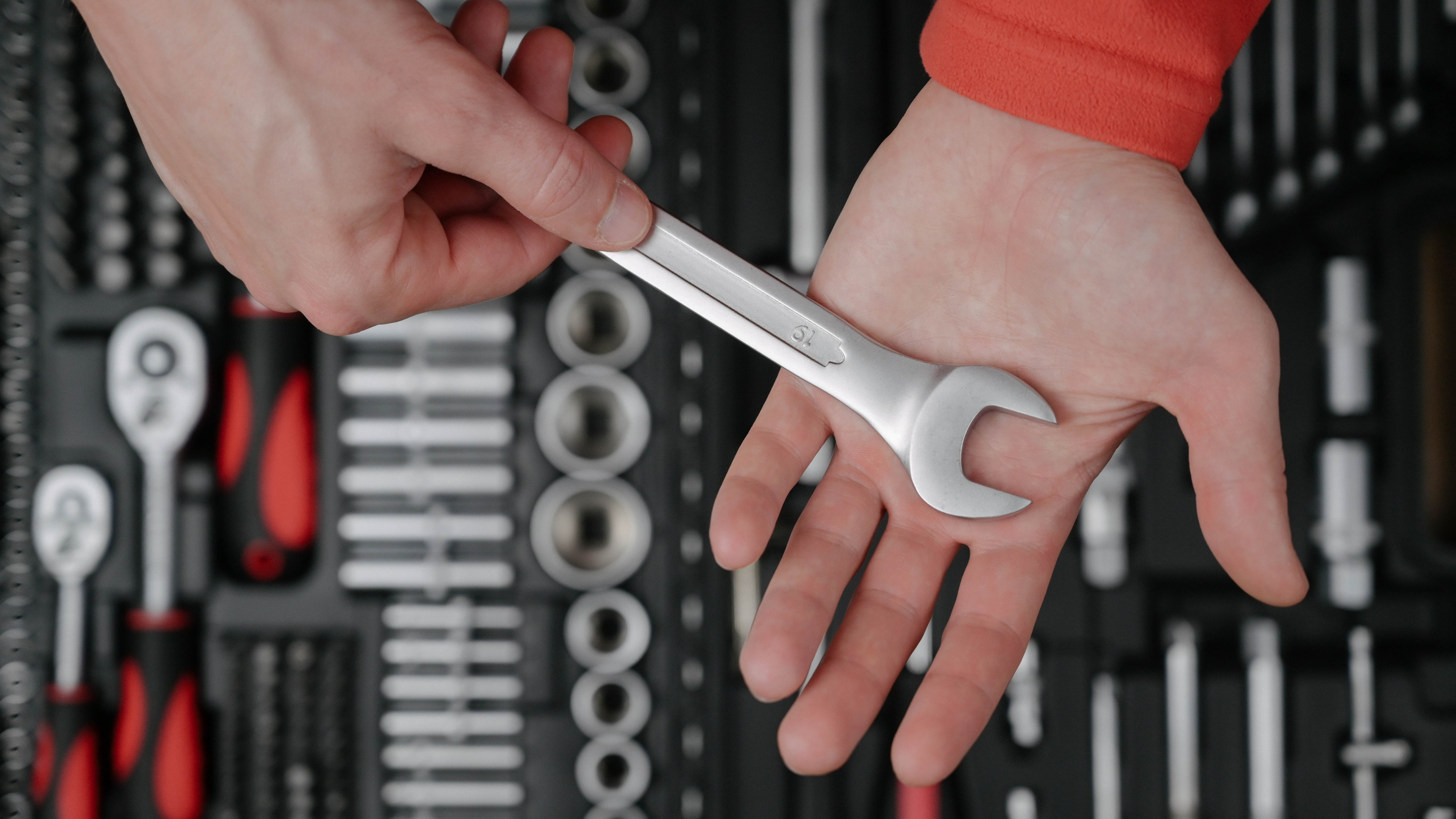
This should include basic tools, like screwdrivers, pliers and a wrench. But also everything you need to change a tire including a jack and a lug-wrench.
A multi-tool can help solve a multitude of issues as well as duct tape and cable ties for temporary repairs to help you get the car to a mechanic for proper repairs.
4. Jumper cables
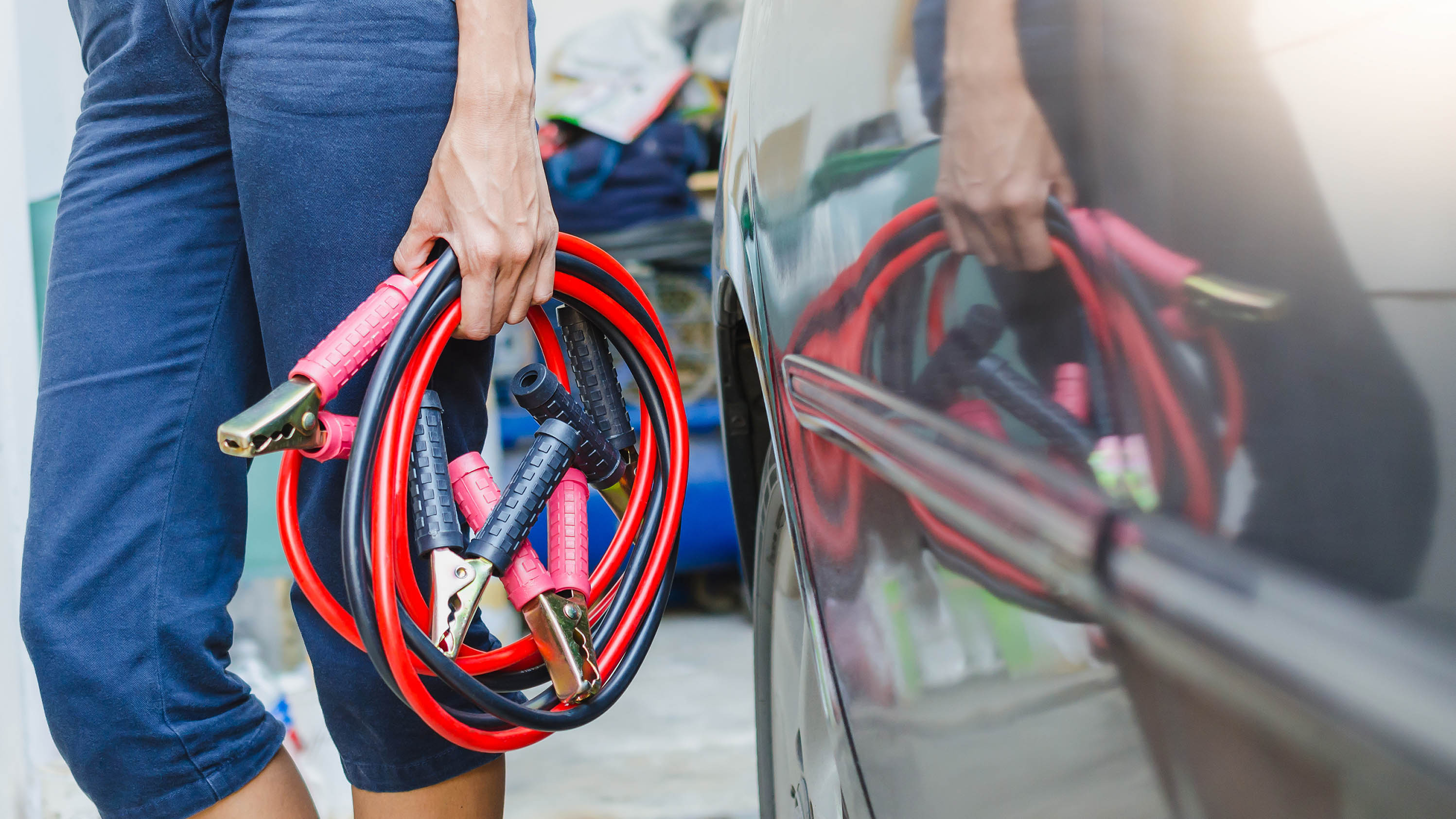
With a set of jumper cables you can jumpstart a car with a flat battery by connecting the cables to a car with a charged, working battery. The cables could be rattling around in the trunk of your car unused for years. But if you end up with a flat battery they’re vital to getting going again.
What’s more, if you’ve got jumper cables and you come across somebody else stranded with a flat battery, you get to be a good samaritan and help them out. Just be sure to read up on exactly how to use them.
Check out our guide on how to jump start your car.
5. Roadside safety kit
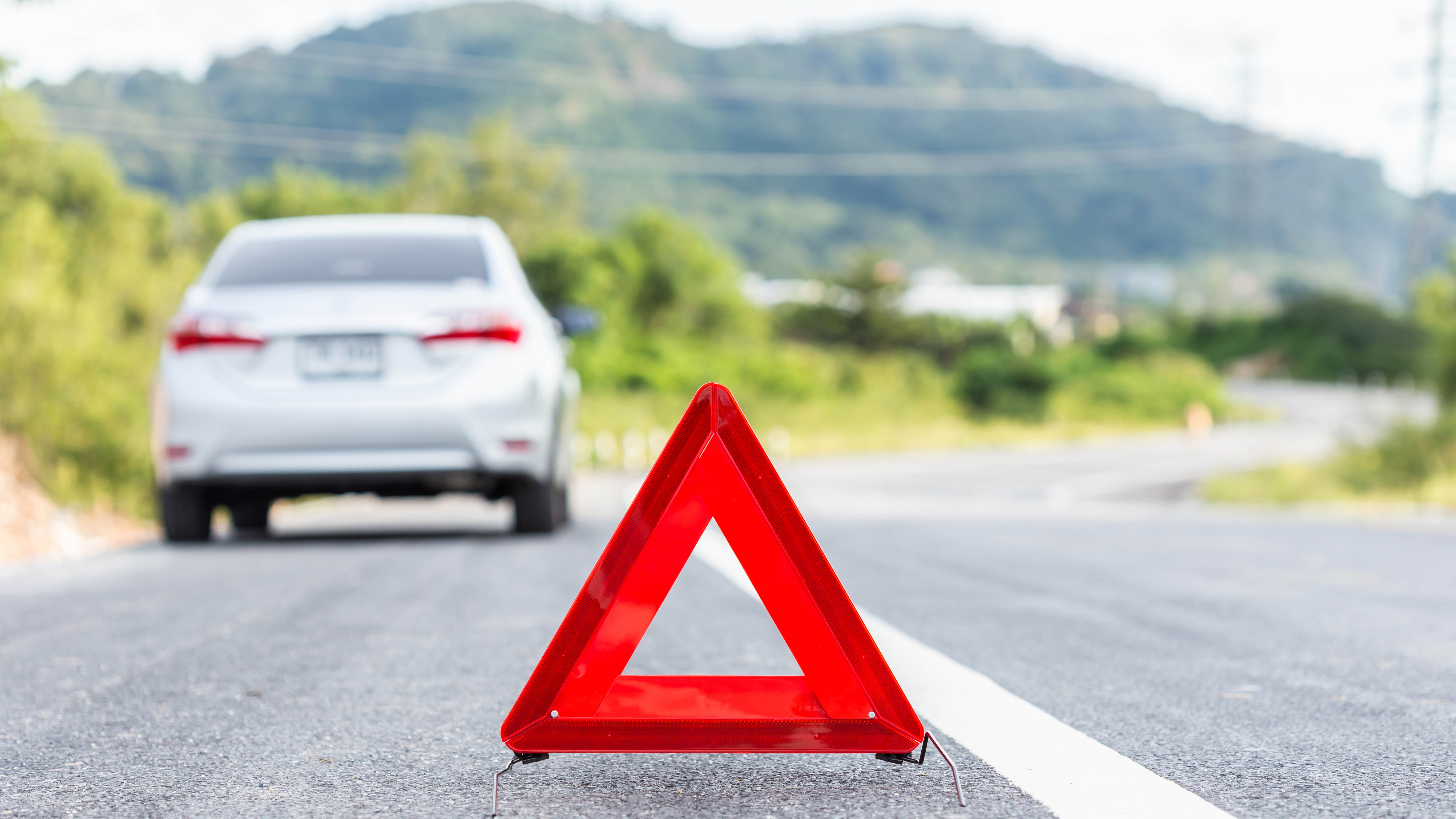
Depending on the speed limit of the road, how busy it is, as well as how dark it is, being stranded on the roadside can be a highly dangerous place. Not to mention if you’re trying to tackle roadside repairs or change a tire. So a few roadside safety items are important to alert other drivers of your presence and safeguard you while you work on your car.
This should include warning triangles, flares and a reflective vest. Think anything that makes you seen, and warns oncoming traffic to slow down if necessary. You can buy everything as a bundled kit like this DEDC Roadside Emergency Kit ($19.19, Amazon).
6. Engine essentials
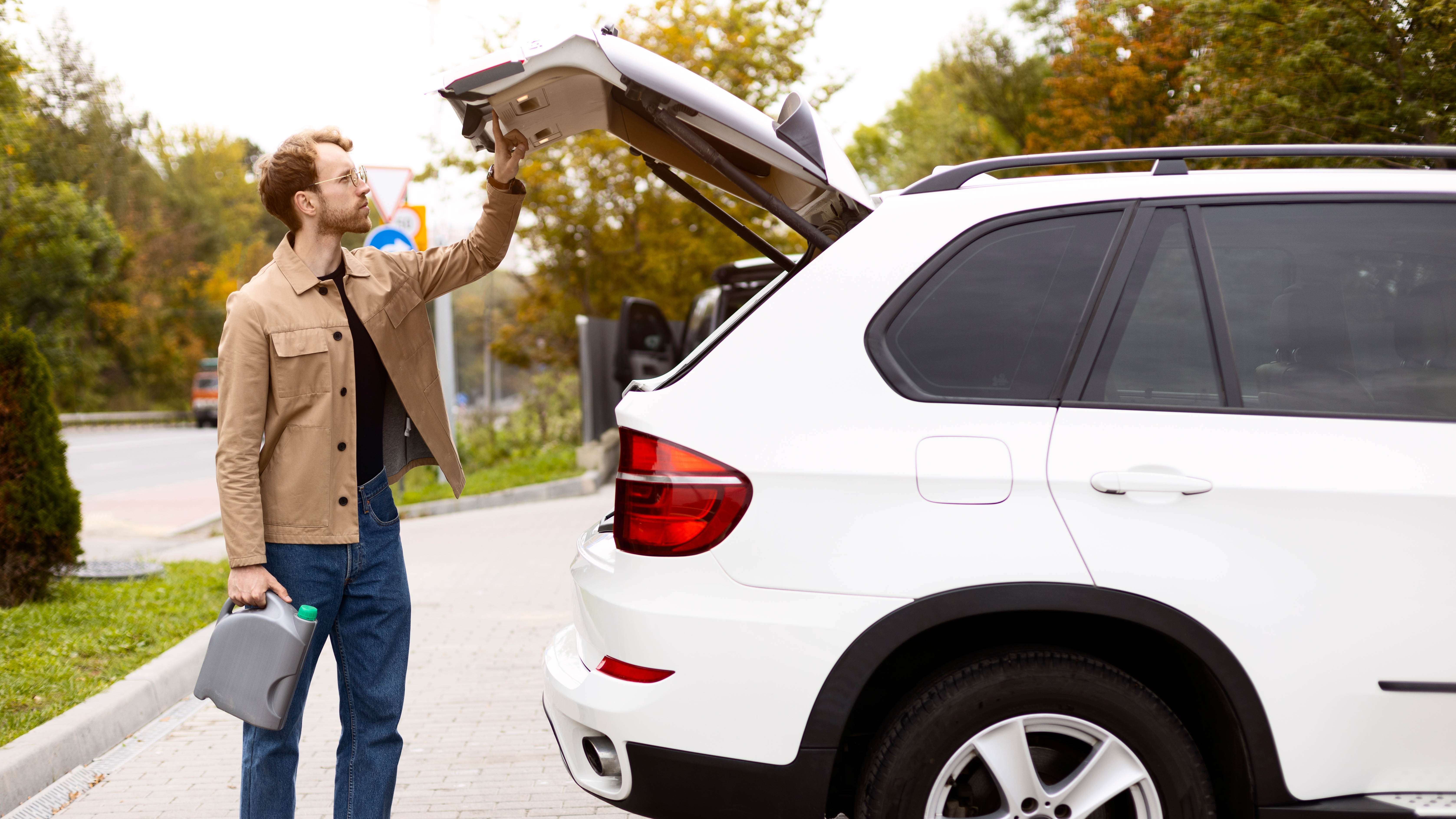
It’s always a good idea to check and top up fluids such as motor oil, windshield washer fluid, and coolant on a regular basis as well as before a long journey.
But, as a precaution, it’s worth keeping extra in your trunk in case you need to top up on-the-go.
7. Air compressor and tire sealer
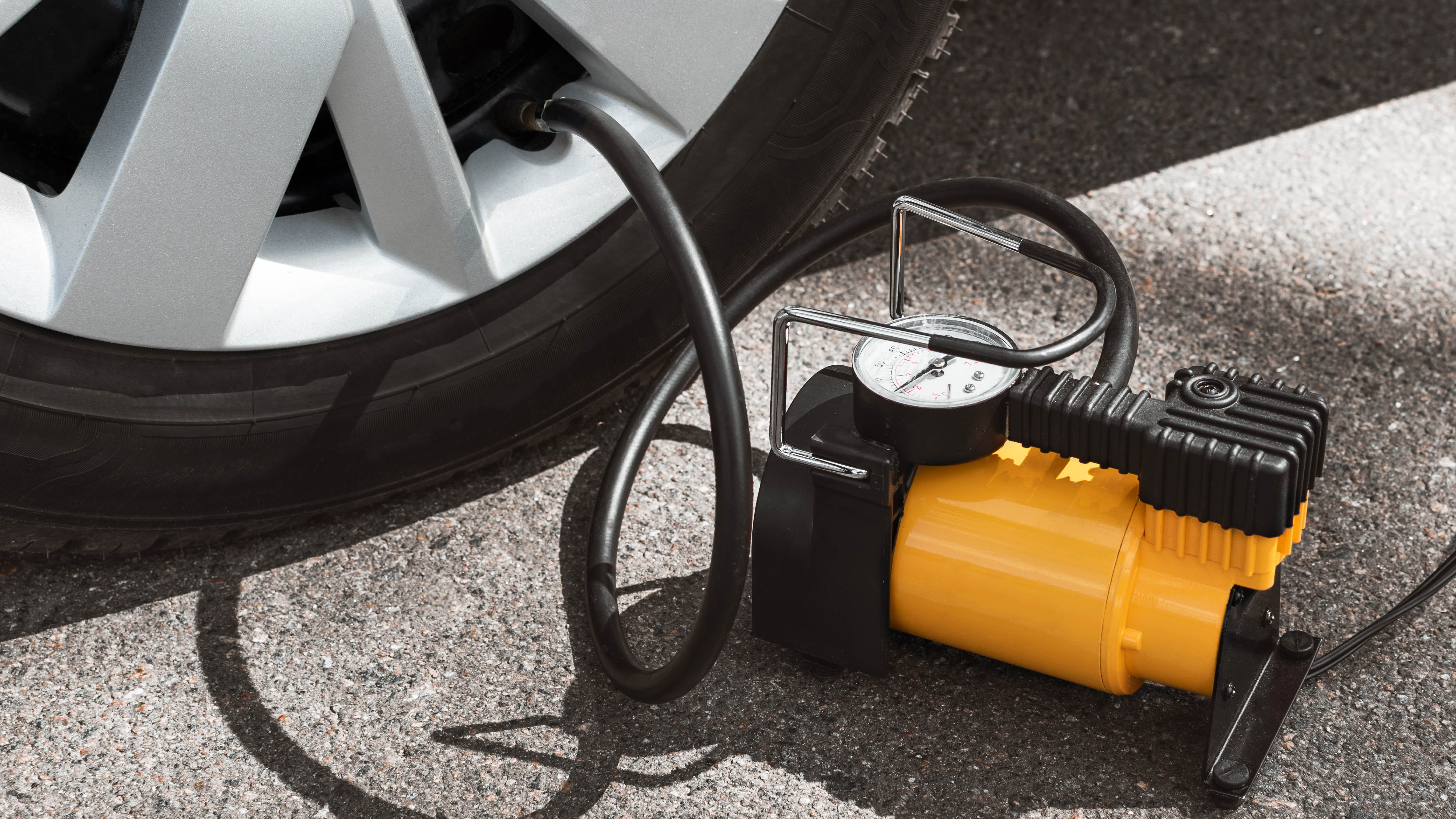
This one’s particularly helpful if you’re not confident in changing a tire or if you don’t have a spare in your car. The air compressor can re-inflate your tire, while the sealer will temporarily seal up the leak. This isn’t a permanent fix, but should be good enough to get you to a tire repair shop for a longer term fix. You’ll need an air compressor specifically for tires and the sealant needs to be for tires too. You can buy them as a kit, like the AirMan ResQ Tire Repair Kit ($59.99, Amazon).
If you’re just starting out and need to buy most things on this list, look out for bundled roadside emergency kits, like this FCLUSLL Car Roadside Emergency Kit ($49.99, Amazon). You can pick up kits that include several things from this list and they work out very cost effective.
At first glance, you might be looking at this list and worrying that all this stuff will take up too much of the available space in your trunk. But it’s surprising how compact you can make it. And investing in a trunk organizer, such as this Honey-Can-Do SFT-01166 Soft Storage Chest ($12.99, Amazon), is an easy and inexpensive way to keep it all neatly together and organized.
More from Tom's Guide
- The best electric cars of 2023
- Your car's windshield is one of the 7 things you should never clean with Windex
- We've found 7 things you should never store in your garage
Helen started reviewing home and kitchen appliances in 2007 at the Good Housekeeping Institute and has never looked back. She’s now freelance and reviews all sorts of appliances from her home in a pretty village in the UK. Despite having reviewed hundreds of coffee machines in her time, she’s only recently developed a love for coffee and a daily coffee habit, which makes tasting all those coffees much more enjoyable!
 Club Benefits
Club Benefits






